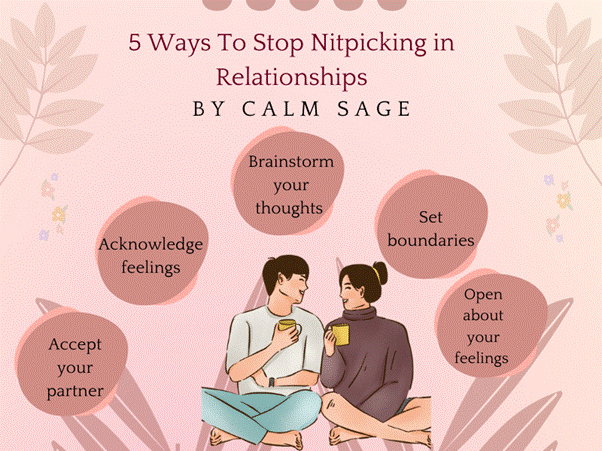Understanding Nitpicking: Definition, Signs, Impacts, And How To Avoid

It really annoys us when someone keeps on finding faults that are not even important! Everyone should be equipped at making improvements but when someone keeps on pointing out the small things…it can often make us feel annoyed, mistreated, or neglected!
It’s a sign of low social intelligence. The fact is that nitpicking can be seen in workplaces, romantic relationships, families, and social settings!
If you are nitpicked by others or you nitpick others, it’s high time to bring a better change in yourself! Sometimes, we nitpick people unintentionally or get nitpicked by others indirectly, and this one habit calls out for a change before someone spots it for you.
Whatever the situation, let us explore what exactly nitpicking means, the psychology behind it, its signs, impacts, and how to avoid it. So, let’s get started!
This blog covers:
- What is Nitpicking?
- The Psychology Behind Nitpicking
- Signs of Nitpicking
- Impacts of Nitpicking
- Tips to Avoid Nitpicking Others
What is Nitpicking?
Nitpicking means focusing on too many details which are not even important. It’s a form of criticism wherein someone keeps on pointing out minor things. When you are in a relationship with someone, accepting their flaws and habits should be adapted to make it successful. But when someone keeps on pointing out little things, it can get messy, and ultimately it can tear away the bond you used to have! It can make the relationship conflicted, stressed, resentful, and full of frustration.
Generally, when we nitpick someone, we send them a clear message that we are a judgmental personality. People who are nitpicked often lack self-esteem and self-confidence because they start feeling that they are full of flaws.
Nitpicking in the workplace can have negative impacts because a team member might start feeling discouraged, stressed, and unappreciated.
Be it a relationship or the workplace, maintaining balance is the only key to keeping yourself sane during the journey. Before we directly get on the tips to avoid, let us understand some more facts about nitpicking…
The Psychology Behind Nitpicking
We are grown to become great intellectuals and when it comes to dealing with people, we often judge them quickly without even looking at the bright side. We habitually analyze someone’s life experiences based on our experiences and that’s when nitpicking starts taking its place.
When we lack empathy for others, we start comparing our experiences with others, judge them, and start pointing them out without even thinking.
Sometimes, we nitpick others unintentionally, but have you ever wondered…what it looks like! It looks like we lack empathy, we are quick judges, and we don’t respect others boundaries before pointing them out constantly.
15 Signs of Nitpicking
Below are some of the signs of nitpicking others:
- You constantly point out someone’s little mistakes which are unimportant.
- You feel constantly frustrated or irritated because you focus on too many irrelevant details.
- You have a habit of fussing over minor and unimportant details.
- You often see yourself accusing people despite their hard work.
- You find difficulty in accepting someone’s flaws and faults.
- You unexpectedly keep high expectations from others.
- You want to become a positive person with high criticism running inside.
- You feel helpless when someone keeps on making small mistakes.
- You often complain excessively about the small details.
- You are over-sensitive and you like to do things on your own.
- You were raised in a negative or toxic environment.
- Your past experiences bring your self-critical side.
- You often feel you’re pedantic, perfectionist, and goal-oriented.
- You never appreciate someone’s effort or hard work.
- You want to make your partner a perfectionist and keep on finding faults to make them a better person
Impacts of Nitpicking
When we nitpick on others, we both start feeling frustrated and annoyed because it’s challenging to accept critical feedback from both. Accordingly, there are various impacts of Nitpicking on everyone involved:
- Damaged relationships: Constant Nitpicking damages the relationship as it forms feelings of resentment, anger, and other negative emotions.
- Conflicted relationships: Nitpicking causes conflicts in relationships as a lack of boundaries and respect forces another person to feel negative.
- Stress, anxiety, and more: Constant pointing out causes stress, anxiety, irritability, and frustration in both people as they are not able to express their feelings openly.
- Decreased trust and intimacy: Lack of boundaries, expectations, and rules in a relationship cause reduced trust and intimacy between both partners.
- Fired feeling of resentment: Constant Nitpicking fires up feelings of resentment in another partner which can have serious impacts on the overall well-being.
- Reduced self-esteem: People who are nitpicked constantly have reduced self-esteem as they keep on questioning their abilities.
- Reduced satisfaction in the relationship: Nitpicking can put the whole relationship at stake and both partners start feeling dissatisfied with each other.
Tips to Avoid Nitpicking Others
Avoiding Nitpicking in Relationships

1. Accepting your partner
Accepting your partner’s flaws, strengths, and weaknesses define your affection toward them. I know it’s quite hard to adjust to some habits that annoy you, but you can learn to fight your own battles and save your marriage. This is one of the best ways to establish a conflict-free marriage.
2. Acknowledging your feelings
Whenever you decide to point out your partner’s flaws, focus on your feelings. Is there really a need to point to those flaws again and again? Maybe you can make them understand by hugging them or making them understand with patience. Acknowledge your feelings, consider the need, and try to find a better solution.
3.Setting relationship boundaries
Being kind and supportive is the best thing you can do to love your partner. Apart from that, set some relationship boundaries so that your partner can understand what annoys you and what makes you happy. Take some time out together, and set boundaries together to make your relationship/marriage successful.
4. Opening up about your feelings
Try to have an open discussion with your partner so that you can bring positive changes together. The first thing you want to do is to make the conversation accountable and raise awareness so that your partner can understand your feelings, dust off the hard feelings, regain affection, and repair your relationship.
5.Brainstorming your thoughts
It’s quite challenging to stop a habit without replacing it with a positive habit. Every time you see yourself stuck with nitpicking, try to replace the thoughts and actions with a positive habit. For example, if you don’t like messy rooms, homes, or corners, you can try cleaning the home together, and make your partner learn about your likes and dislikes.
Avoiding Nitpicking at the Workplace
1.Keeping a record
Keeping a record helps us track their behaviors. With the help of the tracker, you can address the issues. If you have good relationships with the nit-picker, maybe you can work together or show to the higher authority for seeking help.
2. Avoid taking their criticism personally
One of the best ways to deal with nitpicking at the workplace is to avoid them and focus on your work. You need to remind yourself that this is their habit and this habit must not make you a toxic person. Therefore, thicken your skin and ignore their behavior.
3.Setting workplace boundaries
Set workplace boundaries to enhance your respect and positivity at work. If they continue their habits, you can report their behavior to HR so that they can take the complaint seriously and focus on their work. Learn how to set workplace boundaries from here:
How to establish work boundaries?
4.Focusing on personal growth
If the nit-picker is your boss, you can start producing quality work which will make it challenging to find fault in your work. This is one of the best ways to deal with a nit-picker boss and focus on your personal growth. Eventually, this will be really beneficial for your career.
5.Seeking help
If you’re frustrated, you can try talking with your co-workers who might be sailing through the same boat. Talking to your co-workers will not only make you feel better but will also help in finding a solution.
If constant nitpicking influences your mental health negatively, you can connect with a mental health professional to unbottle your feelings and focus on your career or personal growth.
To connect with a mental health professional from BetterHelp, click below:

Great for a large network of licensed therapists
-
$60 to $90/week, billed every 4 weeks
-
Therapy via messaging, phone, or live video chat
-
Flexible cancellation at any time
20% off your first month

Great for CBT Based therapists
-
$40/week, billed every 4 weeks
-
Therapy via messaging, phone, or live video chat
-
Specialization for CBT based Therapy
20% off your first month

Best for Treatment Plants
-
$60 to $90/week, billed every 4 weeks
-
Therapy via messaging, phone, or live video chat
-
Flexible cancellation at any time
$100 off your first month with code SPACE
Takeaway: Learn to let go of little things
Constant criticism can seriously damage your relationship (be it professional or personal). If nitpicking is your habit, learn to accept your flaws and others’ flaws, and try to rebuild the relationship again to live a conflict-free life.
I hope this blog helps you understand the impacts of nitpicking and how to stop nitpicking. For more such content, connect with us on all social media platforms.
Thanks for reading!




















